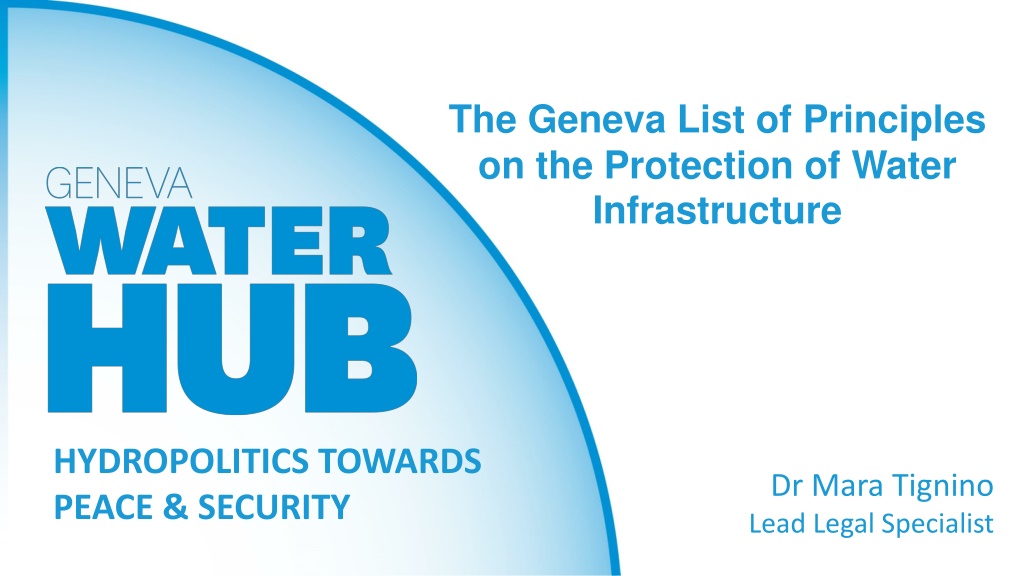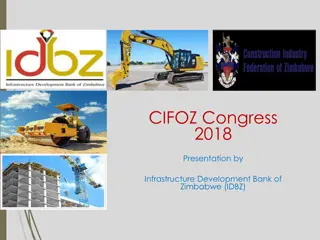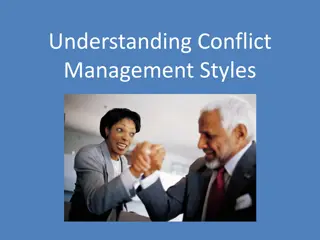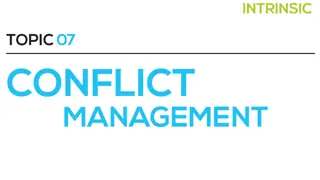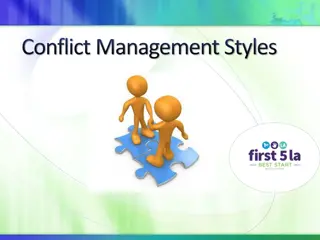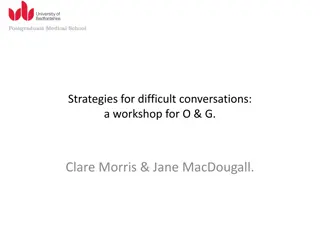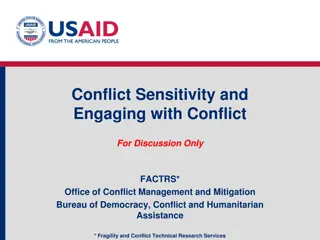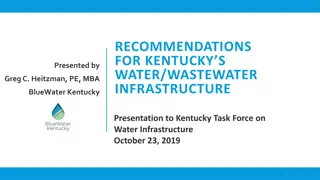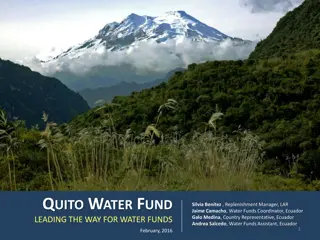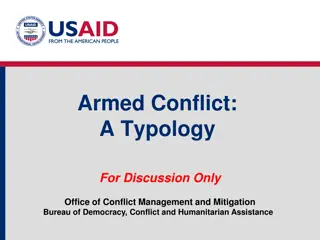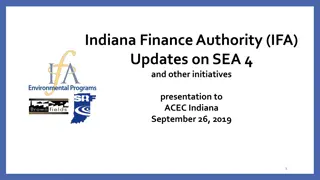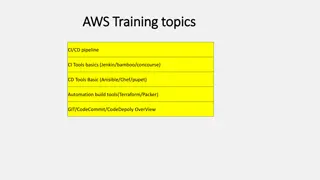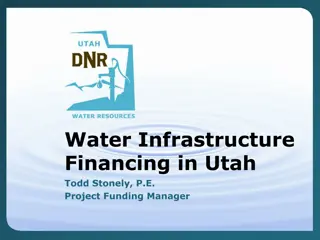Principles for Protecting Water Infrastructure in Conflict Situations
The Geneva List of Principles (GLP) focuses on safeguarding water and water-related infrastructure during armed conflicts. It aims to systematize rules, incorporate good practices, and make recommendations for enhancing protection. The GLP addresses both international and non-international conflicts, emphasizing the importance of preserving essential civilian infrastructure and human rights to water and sanitation.
- Water Infrastructure Protection
- Armed Conflicts
- Human Rights
- Geneva List of Principles
- Conflict Resolution
Download Presentation

Please find below an Image/Link to download the presentation.
The content on the website is provided AS IS for your information and personal use only. It may not be sold, licensed, or shared on other websites without obtaining consent from the author. Download presentation by click this link. If you encounter any issues during the download, it is possible that the publisher has removed the file from their server.
E N D
Presentation Transcript
The Geneva List of Principles on the Protection of Water Infrastructure HYDROPOLITICS TOWARDS PEACE & SECURITY Dr Mara Tignino Lead Legal Specialist
Context and basis of the Geneva List of Principles (GLP) Follow up of one of the recommendations of the Global High-Level Panel on Water and Peace Use of water as a weapon of war by non-state actors Use of explosive weapons in densely populated areas: reverberating and cumulative impacts on essential civilian infrastructure of attacks against essential civilian infrastructure Conflicts are increasingly non-international
Content of the GLP Systematizes the rules applicable to the protection of water and water- related infrastructure It also incorporates good practices of states and other actors Makes further recommendations to improve the protection of water infrastructure It addresses both international and non-international armed conflicts
Material scope of the GLP Water infrastructure means all water and wastewaters works, installations and facilities (i.e. pumping stations, purification & desalinisation plants, water reservoirs) Water-related infrastructure means facilities, installations and other works which makes an essential contribution to the infrastructure so that their destruction or damage would render the water infrastructure inoperable (i.e. energy-related infrastructure but also all information and communication technology needed for providing water) functioning of water
Temporal scope of the GLP The GLP focuses on the protection of water during armed conflicts Some principles are relevant at the end of an armed conflict, i.e. water issues should be included in peace agreements, need to establish joint bodies on water, rehabilitation of water infrastructure
Examples of principles based on areas other than international humanitarian law: human rights law Principle 3 of the Geneva List of Principles: The human rights to water and sanitation Everyone has the rights to water and sanitation, which are essential for the full enjoyment of all human rights .
Role of international environmental law Principle 15 of the Geneva List of Principles: Causing significant damage to the environment Water infrastructure and water-related infrastructure should not be made the object of attack, even when these are military objectives, if such attack is intended, or may be expected, to cause significant damage to the environment .
Role of international water law Principle 19 of the Geneva List of Principles: Joint mechanisms and commissions Watercourse States should create joint mechanisms and commissions, or in any case cooperate and coordinate with a view to ensuring the protection, safe operation and maintenance of water infrastructure located on transboundary water resources .
Follow up of the Geneva List of Principles Principle on cyber operations 1. Water infrastructure and water-related infrastructure must not be attacked, including when using cyber means and methods of warfare, unless they qualify as a military objective. 2. The parties to a conflict must not employ cyber means and methods of warfare: (a) to attack, destroy, remove or render useless water infrastructure indispensable to the survival of the population, such as drinking water installations and supplies and irrigation work; and (b) to attack water infrastructure containing dangerous forces, namely dams and dykes, even when these are military objectives, and other military objectives located at or in their vicinity, if such attack may cause the release of dangerous forces and consequent severe losses among the civilian population. 3. During cyber operations, water infrastructure and water-related infrastructure should not be made the object of attack, even when these are military objectives, if such an attack is intended, or may be expected, to cause significant damage to the environment. 4. Cyber operations against water infrastructure and water-related infrastructure must also respect all other applicable international law rules identified under the Geneva List.
Preliminary key findings of the Report on the Implementation of the Principles Enshrined in the Geneva List in National Frameworks 1. Under national frameworks, there is an increasing trend of protection for water resources and infrastructure both in peacetime and in time of armed conflicts 2. There are some promising positive practices of armed non-state actors (ANSAs) in the realm of the protection of water and water infrastructure 3. However, unfortunately, there are still practices of using water as a weapon or targeting water infrastructure during armed conflicts, which remains a significant threat to people worldwide
Next steps for the GLP Research on how the Principles are included in national practices (i.e. military manuals) Research on existing monitoring mechanisms on attacks against water and water-related infrastructure (i.e. role of UNICEF and its country offices) Accountability mechanisms for the violation of the norms protecting water and water-related infrastructure (i.e. human rights fact-finding commissions, International Criminal Court)
Platform for International Water Law www.unige.ch/droit/eau www.unige.ch/droit/eau Geneva Water Hub www.genevawaterhub.org www.genevawaterhub.org Many thanks for your attention!
